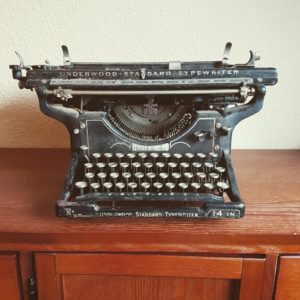I was told in a History class—I’m actually probably told this every year—that the reason we study history is so we can learn from example and avoid making the same mistakes that the people who came before us did. And I just kind of assumed we had our best people on that, making sure we didn’t repeat those mistakes. What I’ve realized since then is that nobody is doing this job. Or that there are people doing this job, but the decision-makers are ignoring them.

What I want to talk about is a little tricky to put a finger on—I guess it’s the loss of respect for smart people. Maybe “respect” is the wrong word, but decision-makers don’t listen to them as much as they once did. Take ancient Rome, for example: philosophers were well respected in society and considered to be very wise. Politicians often went to them for advice or hired them as permanent advisors. People in this day and age think of philosophers as outdated, high-minded, and broke. In my non-expert opinion, I think this is because philosophy has changed. Before science was studied by scientists, it was studied by philosophers. And math was closely related to philosophy as well. The Pythagorean theorem was invented by a Greek philosopher of the same name. Aristotle invented the scientific method, which we still use to this day.
Scientists and mathematicians are busy putting the physical world under a microscope. Historians are living in the past. Philosophers are struggling to stay relevant with logic and ethics as their only remaining expertise. And here’s the important bit; they aren’t talking to each other anymore. Disciplines have become so specialized that they have lost their overarching organization.
What we need to do is make these fragmented disciplines start working and talking with each other again. And then have them either advise politicians or work in politics themselves. We could be a lot more focused as a species if these experts started making us look at the bigger picture. Mathematicians and scientists could drive progress. Philosophers and historians could put the brakes on that progress and steer the ship in the right direction. Maybe if we had a system like that we wouldn’t have junkyards full of cars, an ocean full of plastic, and a population addicted to social media.
We have the knowledge. We have the expertise. What we always seem to be lacking is organization.
